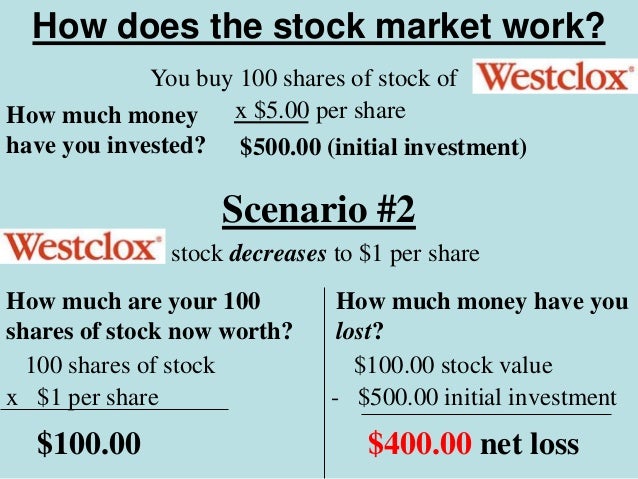If the idea of buying the stock market terrifies you, you are not alone. People with really minimal experience in stock investing are either terrified by scary stories of the typical investor losing 50% of their portfolio valuefor example, in the 2 bearish market that have currently happened in this millennium or are seduced by "hot tips" that bear the pledge of huge rewards however seldom pay off.
The reality is that buying the stock exchange brings threat, however when approached in a disciplined way, it is among the most effective methods to build up one's net worth. While the worth of one's home typically represents most of the net worth of the typical private, most of the affluent and really rich normally have the bulk of their wealth invested in stocks.
Key Takeaways Stocks, or shares of a company, represent ownership equity in the firm, which provide investors voting rights along with a recurring claim on business profits in the form of capital gains and dividends. Stock exchange are where specific and institutional financiers come together to purchase and offer shares in a public venue.

For example, a private or entity that owns 100,000 shares of a business with one million outstanding shares would have a 10% ownership stake in it. Most business have impressive shares that face the millions or billions. Typical and Preferred Stock While there are two primary Have a peek at this website kinds of stockcommon and chosenthe term "equities" is synonymous with common shares, as their combined market worth and trading volumes are numerous magnitudes larger than that of favored shares.
Preferred shares are so called due to the fact that they have choice over the typical shares in a company to get dividends in addition to properties in case of a liquidation. Common stock can be further classified in terms of their voting rights. While the basic premise of typical shares is that they must have equal voting rightsone vote per share heldsome companies have dual or numerous classes of stock with different ballot rights connected to each class.